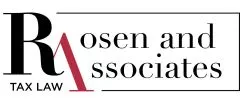- with Senior Company Executives, HR and Finance and Tax Executives
- with readers working within the Accounting & Consultancy, Technology and Property industries
The individual tax filing deadline for 2023 personal taxes has passed, as the deadline to file was April 30th. However, the next step that occurs in the tax return process, is the issuance of notices of assessment confirming taxes owing, or, in some cases, refunds issued. Unfortunately, scammers use this time of year to take advantage of unsuspecting individuals.
In Canada, one of the most prevalent scams is perpetrated by individuals, often from abroad, impersonating Canada Revenue Agency (CRA) agents. These scams can result in financial loss, identity theft, and emotional distress. However, you can protect yourself and those close to you from falling victim to these schemes by understanding how they operate.
First, it's crucial to understand how these scams typically operate. Fraudsters use a variety of methods to impersonate CRA agents, such as phone calls, emails, or text messages. They may claim that you owe back taxes, threaten legal action, or offer refunds to lure you into providing personal or financial information. It's important to note that the CRA most often communicates through written letters sent to your physical mailing address. You can also access CRA mail through your online CRA portal. The CRA will never request personal information by email or text, and they certainly won't ask for payment through prepaid credit cards or gift cards.
One of the most effective ways to safeguard against CRA scams is to verify the legitimacy of any communication purportedly from the agency. If you receive a suspicious call or message, hang up or delete it immediately, and do not give out any information. If you're concerned about any issues with your taxes, you can then independently contact the CRA through their official website or phone number to confirm whether the communication was legitimate and what you may have to do. You will never be penalized in any way for verifying CRA communication or independently contacting the CRA to verify the legitimacy of a message.
Furthermore, never provide personal information, such as your social insurance number or banking details, unless you are certain you are dealing with a legitimate CRA representative. Be wary of unsolicited requests for sensitive information and remember that the CRA already has much of the information they need on file.
In addition to safeguarding your personal information, consider registering for the CRA's My Account service. This online portal allows you to securely access your tax information and receive mailed letters from the CRA in PDF format. You can also turn on notifications to be notified via email when you receive new mail in your CRA online account.
If you suspect that you have been targeted by a CRA scam or have fallen victim to fraud, it's crucial to take action immediately. Report the incident to the Canadian Anti-Fraud Centre, your local law enforcement agency and change any compromised passwords right away.
While CRA scams are prevalent in Canada, they can be avoided with vigilance, education, and proactive measures. By staying informed, verifying the legitimacy of communications, and safeguarding your personal information, you can protect yourself from falling prey to fraudulent schemes.
The content of this article is intended to provide a general guide to the subject matter. Specialist advice should be sought about your specific circumstances.



